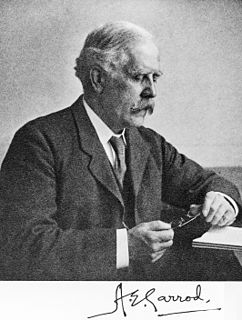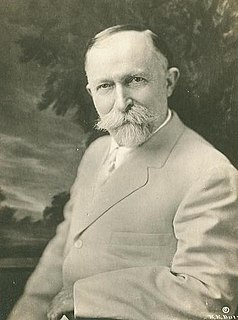A Quote by Isaac Newton
This Excellent Mathematician having given us, in the Transactions of February last, an account of the cause, which induced him to think upon Reflecting Telescopes, instead of Refracting ones, hath thereupon presented the curious world with an Essay of what may be performed by such Telescopes; by which it is found, that Telescopical Tubes may be considerably shortened without prejudice to their magnifiying effect. On his invention of the catadioptrical telescope, as he communicated to the Royal Society.
Related Quotes
Nothing is more unjust, however common, than to charge with hypocrisy him that expresses zeal for those virtues which he neglects to practice; since he may be sincerely convinced of the advantages of conquering his passions without having yet obtained the victory as a man may be confident of the advantages of a voyage or a journey, without having courage or industry to undertake it, and may honestly recommend to others those attempts which he neglects himself.
A friend is a person with whom I may be sincere. Before him I may think aloud. I am arrived at last in the presence of a man so real and equal, that I may drop even those undermost garments of dissimulation, courtesy, and second thought, which men never put off, and may deal with him with the simplicity and wholeness with which one chemical atom meets another.
A good author, and one who writes carefully, often discovers that the expression of which he has been in search without being able to discover it, and which he has at last found, is that which was the most simple, the most natural, and which seems as if it ought to have presented itself at once, without effort, to the mind.
Many causes may vitiate a writer's judgement of his own works. On that which has cost him much labour he sets a high value, because he is unwilling to think that he has been diligent in vain: what has been produced without toilsome efforts is considered with delight as a proof of vigorous faculties and fertile invention; and the last work, whatever it be, has necessarily most of the grace of novelty.
Science is not, as so many seem to think, something apart, which has to do with telescopes, retorts, and test-tubes, and especially with nasty smells, but it is a way of searching out by observation, trial and classification; whether the phenomena investigated be the outcome of human activities, or of the more direct workings of nature's laws. Its methods admit of nothing untidy or slip-shod; its keynote is accuracy and its goal is truth.
Every man, however hopeless his pretensions may appear, has some project by which he hopes to rise to reputation; some art by which he imagines that the attention of the world will be attracted; some quality, good or bad, which discriminates him from the common herd of mortals, and by which others may be persuaded to love, or compelled to fear him.
In certain cases, a man blind from birth may have an operation performed which gives him his sight. The result: frequently misery, confusion, disorientation. The light that illumines the madman is an unearthly light, but I do not believe it is a projection, an emanation from his mundane ego. He is irradiated by a light that is more than he. It may burn him out.
A remedy [for masturbation] which is almost always successful in small boys is circumcision, especially when there is any degree of phimosis. The operation should be performed by a surgeon without administering an anaesthetic, as the brief pain attending the operation will have a salutary effect upon the mind, especially if it be connected with the idea of punishment, as it may well be in some cases. The soreness which continues for several weeks interrupts the practice, and if it had not previously become too firmly fixed, it may be forgotten and not resumed.
There is an earthly sun, which is the cause of all heat, and all who are able to see may see the sun; and those who are blind and cannot see him may feel his heat. There is an Eternal Sun, which is the source of all wisdom, and those whose spiritual senses have awakened to life will see that sun and be conscious of His existence; but those who have not attained spiritual consciousness may yet feel His power by an inner faculty which is called Intuition.







































